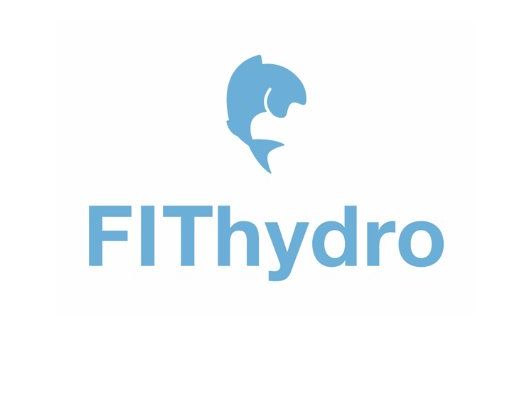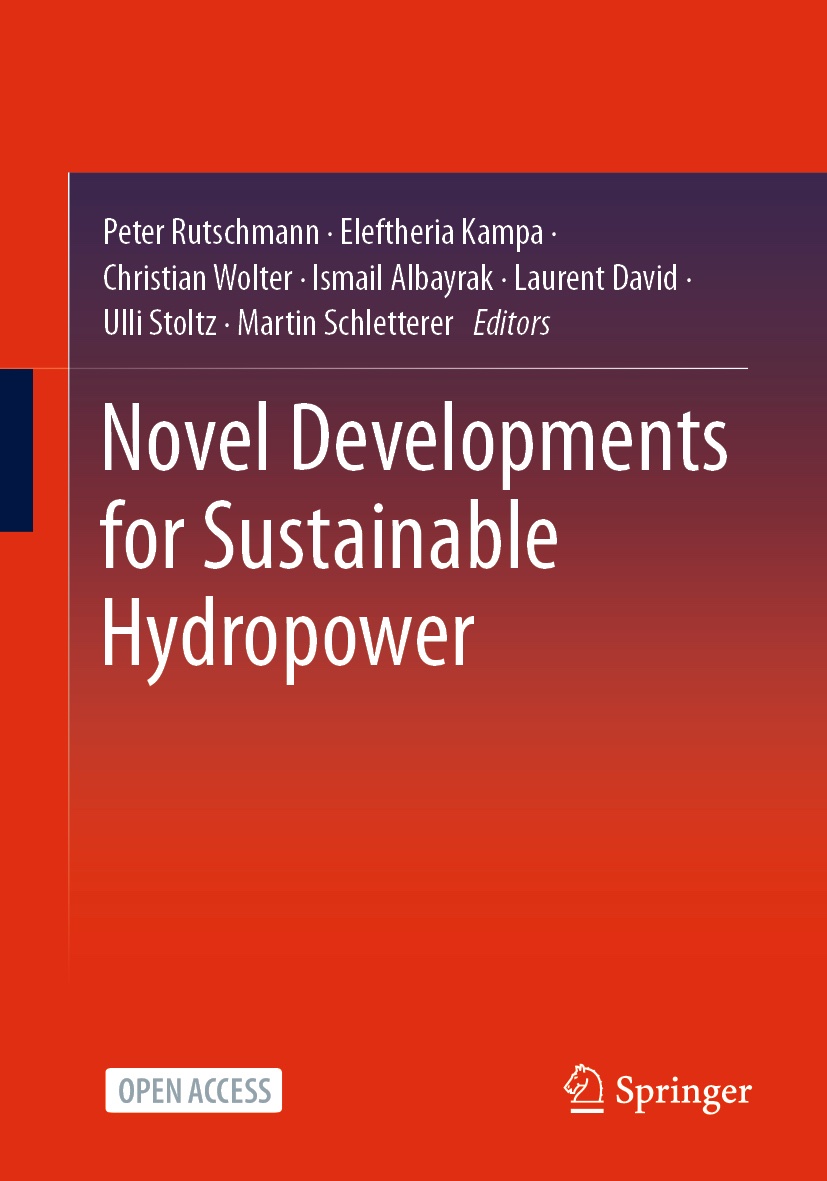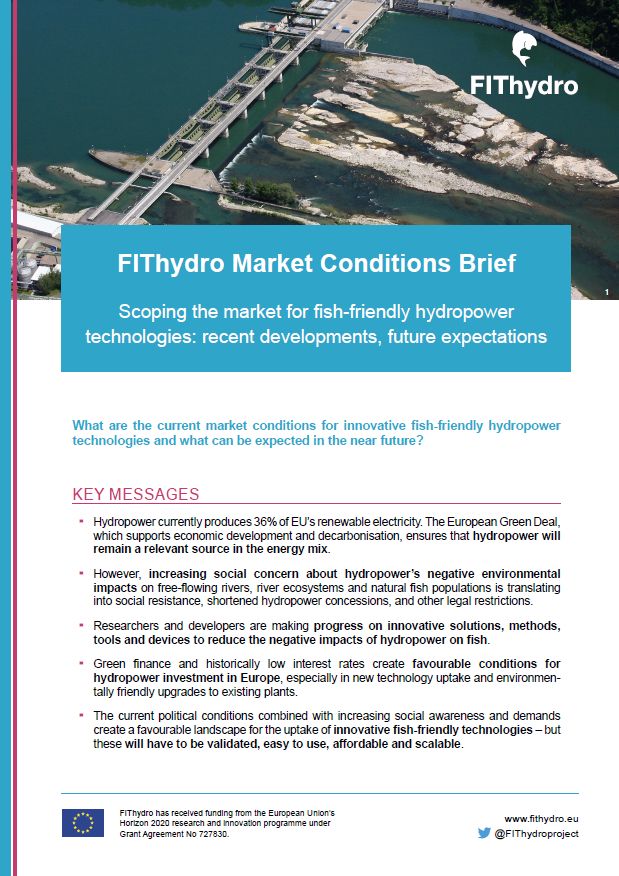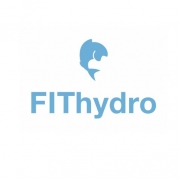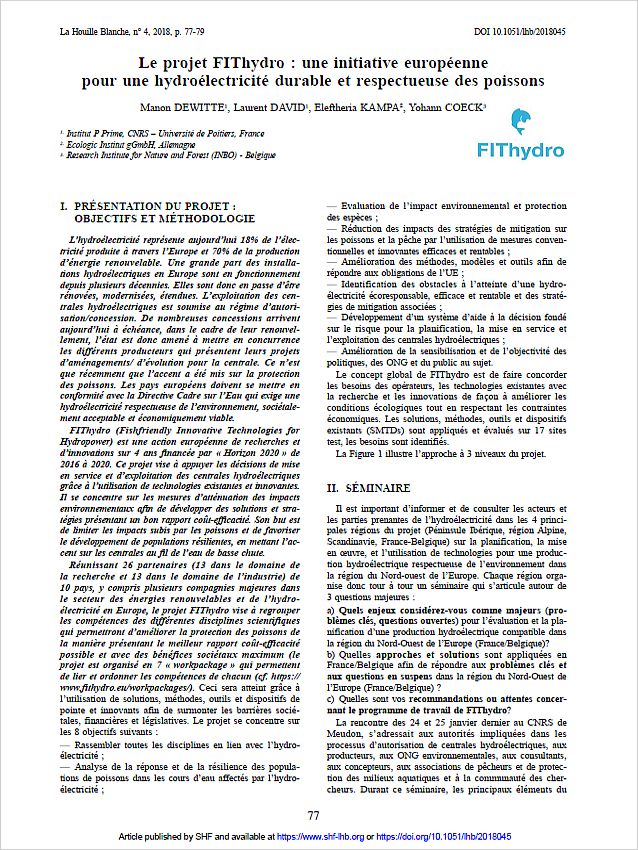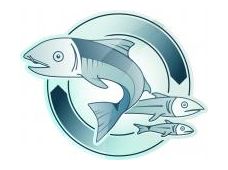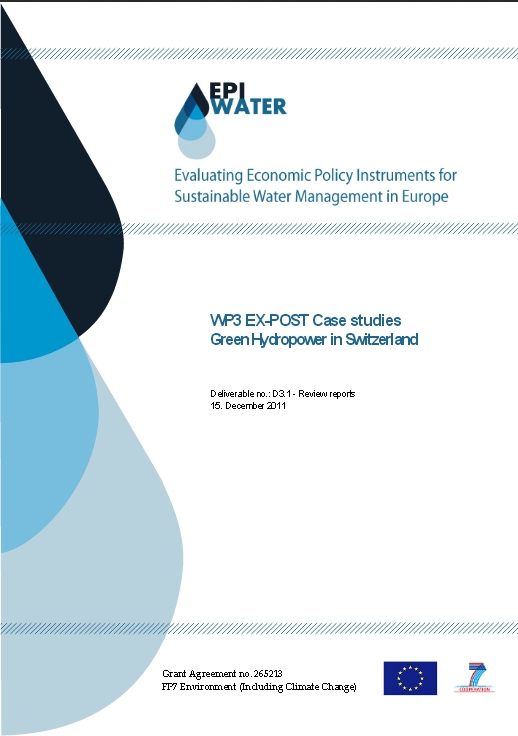In the Europe-wide FIThydro project, Ecologic Institute worked with research and industry partners to study existing hydroelectric power plants. Together the project partners developed new assessment methods and technologies such as a fish population hazard index, simulations for fish migration and an open-access decision support tool for hydropower planning. The goal: making hydropower more fish-friendly and environmentally sustainable. All project results are made available online.
Hydropower is one of the most important and widely used renewable energy sources. The big advantage: it is far less weather-dependent than wind power and solar energy. However, the use of hydropower plants also involves major interventions in the environment, including the damming of rivers, changes in aquatic habitats, and fish mortality through turbines, spillways or screens.
Reducing these negative ecological effects is one of the objectives of the European Water Framework Directive. However, older hydropower plants in particular often fail to meet these new requirements and need to be retrofitted before their certification can be renewed. The decision on economically viable measures for implementing these changes have to be made individually for every hydropower plant, “It is important to tailor existing solutions to the site-specific factors of each plant,” explains Prof. Peter Rutschmann from the Technical University of Munich and coordinator of the FIThydro project.
Studying hydropower plants across Europe
In the four-year EU project FIThydro (Fishfriendly Innovation Technologies for Hydropower), a work group made up of 26 European research institutions and companies studied the effects of hydropower plants on ecosystems and in particular fish at 17 test sites in eight countries. "It was important to us that the test sites reflect the diverse geographical, hydromorphological and climate conditions so that our results would be applicable to a wide range of hydropower plants in Europe," explains Prof. Rutschmann.
At the test sites and in laboratories, the project partners initially studied existing methods, technologies and approaches for the assessment of impacts and mitigation measures at hydropower plants. "We wanted to identify the knowledge gaps and find out how we could improve existing tools," says Prof. Rutschmann.
Hazard index for fish populations
One example is the Fish Population Hazard Index for European fish species, which quantifies the risk posed by hydropower use to fish populations. It was developed by scientists at the Leibniz-Institute of Freshwater Ecology and Inland Fisheries and the Technical University of Munich. They collected data such as fish lifespan, reproduction rates and migration behaviour as well as habitat requirements such as temperature and flow rate of the stream. Based on this data, tolerance thresholds were derived for individual species that are specific to the impacts of hydropower plants. These can then be used by hydropower operators for the assessment and planning of mitigation measures.
Decision making tools for hydropower operators
Along with the risk analysis and assessment of hydropower plants, the second part of the project explored possible measures to retrofit hydropower plants – as well as decision making tools for hydropower operators and planners. "These decisions are highly complex," says Prof. Rutschmann. "The hydropower plant and the site-specific conditions play a role. But it is also necessary to comply with regulatory standards on the national and EU level. And for the operators it is of course important for the measures to be effective and cost-efficient."
Ecologic Institute has coordinated the different project activities on decision making support. In this context, it carried out a review of policy requirements at EU and national level for planning mitigation measures at hydropower plants. Ecologic Institute has also facilitated via workshops the exchange between FIThydro experts and other stakeholders on main open issues, research needs and the added value of tools developed by FIThydro on the assessment of impacts and the planning of fish-friendly hydropower plants. Further, Ecologic Institute and other FIThydro scientists have explored public opinion on hydropower and hydropower technologies in four European case study towns in Portugal, France, Sweden and Germany. Among the main conclusions was that awareness on mitigation measures is often lacking. Awareness campaigns promoting the multiple benefits of ecological measures and the establishment of comparable monitoring standards of measure efficacy can enhance the public acceptance of mitigation measures.
Open-access online tools
One of the main results of the project is the FIThydro Decision Support System that can be used when planning and assessing hydropower plants. The user can enter data on the type of the power plant, its location, the fish populations present in the waterways and other characteristics. Taking into account environmental policy requirements and international regulatory guidelines, the software then analyses the data to calculate the level of environmental risk and the fish population hazard and recommends mitigation measures.
A wiki has also been created in the project. "There are different practices in every country, but the knowledge exchange is not yet where it should be," says Prof. Rutschmann. "For example, people are often unaware of measures that have been tried out and found to be efficient elsewhere. We hope that the wiki will support the networking of knowledge."
More information:
The research project "Fishfriendly Innovative Technologies for hydropower (FIThydro)" involves 13 research institutions and 13 companies in Germany, Belgium, Estonia, France, the UK, Norway, Austria, Portugal, Switzerland and Spain. It is coordinated at the Chair of Hydraulic and Water Resources Engineering at the Technical University of Munich (TUM). Ecologic Institute is a key partner to this research project leading one of the seven project work packages. The project received 7.2 million euros in funding from the European Union's Horizon 2020 research and innovation programme under Grant Agreement no. 727830 and the Swiss National Fund for Scientific Research (SNF).
Contact:
Dr. Eleftheria Kampa
Ecologic Institute
Tel: +49 30 86880145
eleftheria.kampa(at)ecologic.eu
info(at)fithydro.eu
